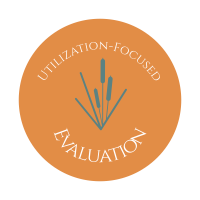Session Number: 2270
Track: Systems in Evaluation
Session Type: Panel
Session Chair: Michael Quinn Patton [Founder & Director - Utilization-Focused Evaluation]
Discussant: Marah B Moore [Director - i2i Institute]
First Author or Discussion Group Leader: Pablo Vidueira [Global Systems Change (Blue Marble) Evaluator - Global Alliance for the Future of Food]
Second Author or Discussion Group Leader: Glenn G. Page [SustainaMetrix]
Third Author or Discussion Group Leader: Claire Nicklin [Andean Regional Representative - Collaborative Crop Research Program]
Time: Nov 14, 2019 (08:00 AM - 09:00 AM)
Room: CC M100 A
Abstract 1 Title: Blue Marble Bricolage
If we do not actively alter path-dependence that underlies the Anthropocene, we will end up reinforcing it. Blue Marble evaluation applies the concept of bricolage to both see and alter path-dependence of a social-ecological systems. An example of response to rapid warming in the Gulf of Maine will illustrate the concept of Blue Marble Bricolage to develop new opportunities and innovative solutions that can have a systemic impact. The Bricoleur must have a global and local perspective, a deep sense of context awareness, ability to learn from the past, deeply focused on the present and able to create recombinations of pre-existing and new ideas, concepts or technologies for collective seeing and acting in the future. This act of recombination has been termed bricolage, drawn from the junk collectors in France and defined as making creative and resourceful use of whatever materials are at hand, regardless of original purpose.
Abstract 2 Title: Blue Marble Evaluation in practice. The experience of the Global Alliance for the Future of Food
This paper will focus on two aspects of BME practice based on the experience of the Global Alliance for the Future of Food (GA), a strategic alliance of philanthropic foundations aiming to leverage the transformation of food systems towards greater renewability, resilience, equity, diversity, health and interconnectedness.
Integration with other evaluation approaches: In order to help the GA to to adapt and navigate the complexity of food systems transformation, their M&E system relies on four evaluation approaches (Utilization-focused Evaluation, Developmental Evaluation, Principles-focused Evaluation, and Blue Marble Evaluation) working synergistically by yielding different questions for learning and reflection, and for evaluating the design, implementation, and outcomes.
Lessons learnt about tools and methods for applying Blue Marble Evaluation (BME): BME is eclectic in methods. It claims to conduct utilization-focused evaluations incorporating Blue Marble principles to match methods to the evaluation situation. Examples of tools along with lessons learnt will be shared.
Abstract 3 Title: Honoring the local to unearth global learning
The diversity of local experiences and contexts often get averaged, generalized and generally glossed over when moving towards global declarations, which can lead to ineffective silver bullet solutions. Similarly, pertinent global experiences and influences are often ignored when an initiative is too focused on local action resulting in redundant efforts and negative externalities. Synthesizing heterogeneity to reveal patterns that inform learning often requires a transformation in evaluation. The Collaborative Crop Research Program (CCRP) funds projects in 7 countries in Africa and three in South America. The projects are comprised of multi-actor partners such as farmers, national agriculture research organizations, NGOs, and international researchers who often do not see the benefits of thinking and acting across the local-global spectrum. Further, finding ways to integrate local and global perspectives and associated analyses has been a challenge. In this presentation we will present concrete examples of how the CCRP has undertaken Blue Marble Evaluation.
Audience Level: All Audiences
Session Abstract (150 words):
Taking a Blue Marble perspective means viewing the world holistically. It begins with watching for and interpreting interconnections in the global system, thus thinking beyond nation-states, sector siloes, and narrowly identified issues. Blue Marble evaluations assess global-local interactions by observing and documenting contextual variations locally within a coherent global pattern. Blue Marble Evaluation is not a specific set of methods or measurements, though treating the global system as the focus of evaluation has major methodological and measurement implications. Blue Marble evaluators must be able to communicate and work with the vast array of people. Blue Marble evaluations must provide timely, meaningful, relevant, credible, and actionable information in support of global systems change and, ultimately, transformation, thereby becoming part of the solution. This is a tall order! This session will provide some specific examples of how a Blue Marble perspective is being incorporated in three different evaluation practices.
